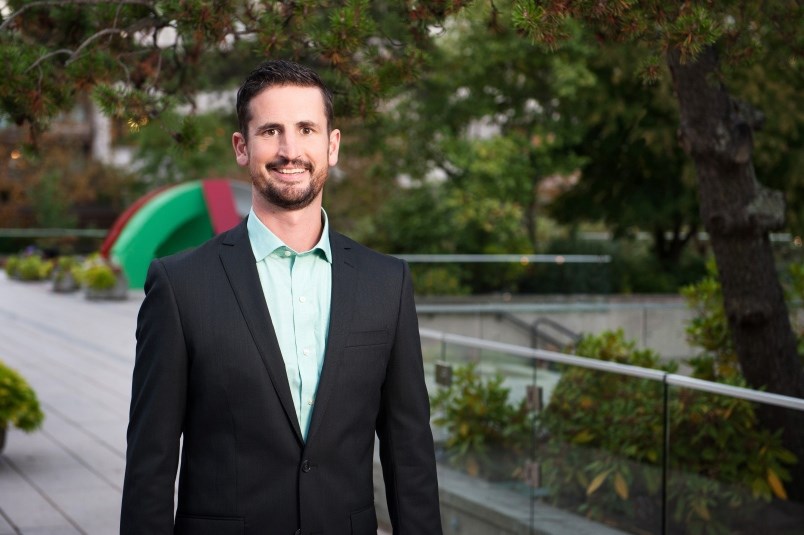B.C. Supreme Court Justice John Steeves made the ruling Wednesday on the first day of a hearing into a case initiated by 15 citizens who petitioned the court in an attempt to have the Green Party councillor removed from office.
“The result of this ruling is that no witness or counsel can rely on [Mr.] Young’s report, except for the fact that it was made,” Steeves told the court. “Once again, the issues, evidence and conclusions in the report are for me to make, and they are at the heart of the petition before me.”
The report in question was authored by lawyer Raymond Young, who was appointed by Mayor Kennedy Stewart last year after his office received a complaint from Vancouver resident Michael Redmond about Wiebe’s votes in May.
Wiebe owns Eight ½ restaurant in Mount Pleasant and is an investor in Portside Pub in Gastown, both of which received patio licences. The licences were awarded after Wiebe voted in favour of a temporary patio program for restaurants, bars and breweries.
Both Redmond and Wiebe agreed for Young to conduct an investigation. Young concluded in his non-binding report in September that Wiebe “is disqualified from holding office until the next election” in October 2022.
He also said “it would be appropriate for councillor Wiebe to resign his seat on council.”
If Wiebe chose not to voluntarily resign, Young pointed out the Vancouver Charter allowed 10 or more electors in the city to petition the court, or have the city apply for a court order to remove him.
That’s how Wiebe, who previously told Glacier Media he acted in good faith when he participated in the votes and his goal was to help businesses hit financially hard by the pandemic, ended up in court Wednesday, albeit virtually.
Steeves was presiding in the Victoria courthouse while Wiebe, his lawyer Aurora Faulkner-Killam, and the petitioners’ lawyer, Wes Mussio, participated via video link. A lawyer for the City of Vancouver also attended.
Media was given access to the hearing via telephone.
Steeves acknowledged it would be “attractive from a practical point of view” to allow Young’s report and extensive exhibits as evidence, but said it could not serve as a substitute for the admission of relevant and properly examined evidence.
“Sticking to the report and exhibits would result in substantial information being admitted without any testing, except for dueling affidavits between the parties about what the report means,” he said.
Steeves’ ruling came after Mussio argued for Young’s report to be included in the hearing, saying that “it’s evidence on the record” of the investigation into Wiebe’s conduct. It was also important, he said, because the petitioners would be unable to do such an investigation.
“If you exclude the entire report, then obviously all these factual findings — which were determined by an investigation — are no longer before the court and it leaves evidentiary gaps, which are going to make it more difficult for the court to determine what the true facts are behind this case,” Mussio said.
Steeves allowed some of the exhibits tied to the report to be used as evidence.
Mussio spent much of Wednesday referring to petitioners’ affidavits, minutes of council meetings, news releases from the City of Vancouver and media reports to argue the councillor was in a conflict of interest and in breach of the city’s Code of Conduct.
Meanwhile, Faulkner-Killam has filed an application with the court requesting all of the affidavits by Redmond and the 14 other petitioners be “struck in their entirety” from the case.
She is expected to outline more of her case Thursday, but likened Young’s report Wednesday to “more akin to a workplace investigation” and that it was prejudicial.
“I’ll gladly say that I have great respect for Mr. Young, but the opinion of a litigator is not the opinion of a court — and he was not sitting in a decision-making capacity,” Faulkner-Killam told the judge.
“He was merely making recommendations based on information that he gathered. So this court should have no regard for it, in these circumstances.”
The hearing continues Thursday.
@Howellings



